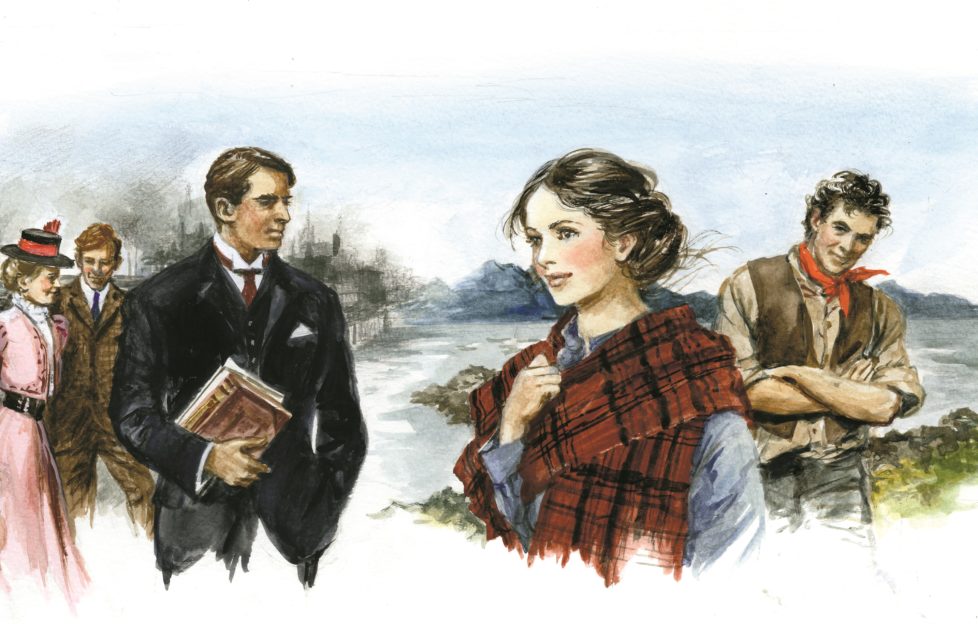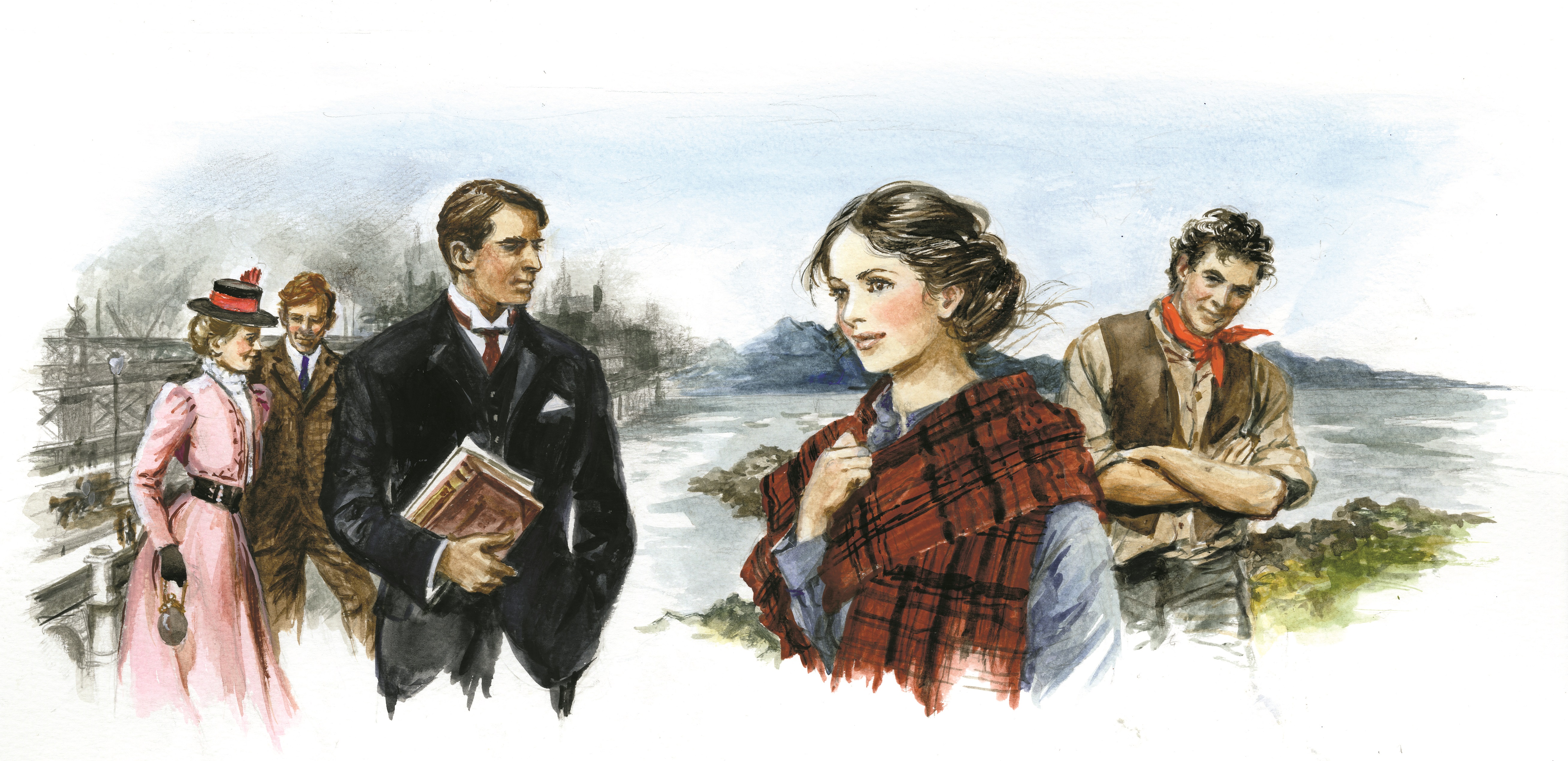Far From The Island – 37

Far From The Island
« Previous Post- 34. Far From The Island – 34
- 35. Far From The Island – 35
- 36. Far From The Island – 36
- 37. Far From The Island – 37
- 38. Far From The Island – 38
- 39. Far From The Island – 39
- 40. Far From The Island – 40
“If you’re sure?” When Roddy nodded, Fiona began haltingly on the speech she had rehearsed. Stick to facts and figures, Matthew had said, that’s what businessmen expect. But Roddy was not a businessman, and as she began to recite the number of patients attending the clinic as a result of industrial accidents, the number of days’ work lost due to ill health, and the percentage of patients who were the Cunninghams’ employees or members of their families, she could see she had lost him.
Fiona cast aside her notes.
“Numbers are all very well, but they don’t tell the true story, if I’m honest, Roddy. It’s the twentieth century – you said so yourself – and yet there are people in Glasgow who are starving, suffering and dying in conditions that are positively Dickensian. The workplaces are no better. Machines are dangerous things, and human beings are just that – human.
“Don’t you think you’ve a responsibility to take better care of your employees? Surely there are things you can do to make that factory of yours safer? What is the cost of a few guard rails or protective garments compared to the cost you incur in the loss of an experienced worker?”
She stood up and began to pace the room.
“Besides, it is not just the loss of your employees I’m talking about. These men have families. Families who go hungry when the breadwinner is ill. Families whose children grow up thin and weak if they grow up at all, for the water they drink is contaminated, and the houses you rent to them have middens rife with disease, to say nothing of the damp. These bairns are your future workforce, remember, Roddy.” She leaned towards him pleadingly. “It would take so little to make such a big difference.”
He was silent for a long time. Remembering belatedly that she had promised Matthew to remain calm and rational, Fiona felt a pang of guilt.
“I’m sorry,” she said. “I did not mean to get so worked up.”
“By the sounds of it, it is I who should be sorry,” Roddy said bleakly. “I had no idea. Are things really so bad?”
“Perhaps you could come and see for yourself,” she said impulsively. “You could go out with Matthew on his home visits. Speak to people. Show them that you want things to change.”
“Show them that I’m not my father, you mean,” Roddy said.
She coloured.
“I did not mean to imply . . .”
“Aye, you did, and you were right,” Roddy said with a wry smile. “You’re a shrewd wee thing, and you’ve put me to shame with what you have told me today.”
“Matthew – Doctor Usher – told me . . .”
“To stick to the facts, I have no doubt.” Roddy got to his feet. “You were right, facts and figures are all very well, and they are what I’ll need if I’m to convince the board to put money into Doctor Usher’s clinic, to say nothing of fixing up our property, sick pay and whatever else is needed, but they don’t tell the real story. I’ll take you up on that offer to accompany Doctor Usher on his rounds. I make no promises, mind.”
This time, Fiona had no hesitation in taking his hand and clasping it warmly between her own.
“Thank you.”
“If I’d known that all I needed to do to earn a look like that from you was to promise to pay a visit to the slums, I would have done it long ago,” Roddy said with a glint of his former rakish charm. “It’s a shame you are a woman of principles, else I’d be tempted to ask for a kiss.”
“Now I know that you really have changed, Roddy Cunningham,” Fiona said, extricating herself.
“How is that?” he challenged.
“A few months ago, you wouldn’t have taken the trouble to ask,” she said, smiling to herself as she closed the door on the sound of his laughter.





